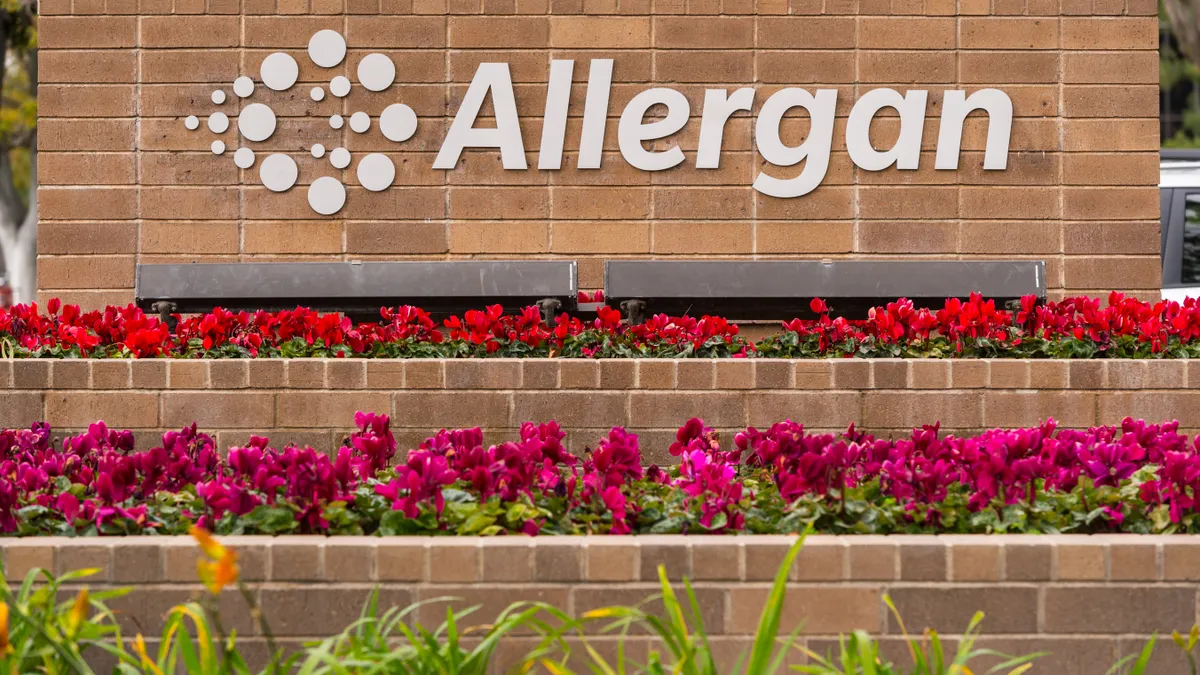Dive Brief:
-
Allergan has begun a global recall of its Biocell textured breast implants and tissue expanders in response to new FDA evidence associating the devices to a form of non-Hodgkin's lymphoma and potentially death.
-
The FDA issued updated figures Wednesday of 573 cases globally of breast implant associated anaplastic large cell lymphoma, with 481 attributed to Allergan's implant. Of 33 patient deaths reported by the agency, 13 cases were identified with a specific manufacturer. Of those, 12 were attributed to Allergan.
-
The global recall follows earlier moves to remove the Biocell products from Canada, Europe and Australia in the face of regulatory concerns about the safety of the devices.
Dive Insight:
Allergan's textured breast implants have been at the center of an escalating safety scandal in recent months. Health Canada and its French counterpart ordered the removal of the drugmaker's Biocell implants from their respective markets earlier this year after analyzing cases of BIA-ALCL. Australia's Therapeutic Goods Administration recently proposed a ban on the devices, too, with Wednesday being the deadline for Allergan to respond before regulators make a final decision.
Throughout the wave of regulatory actions, FDA has taken a softer line than its international peers, concluding in May that it did not believe "the device meets the banning standard set forth" in U.S. legislation. But Wednesday, FDA announced it precipitated a global recall of Biocell implants.
"Although the overall incidence of BIA-ALCL appears to be relatively low, once the evidence indicated that a specific manufacturer's product appeared to be directly linked to significant patient harm, including death, the FDA took action to alert the firm to new evidence indicating a recall is warranted to protect women's health," FDA principal deputy commissioner Amy Abernethy said in a statement.
"This was a shocker," said Jamee Cook, founder of Breast Implant Victim Advocacy, who participated in FDA's two-day advisory panel meeting on the devices in March. "We're extremely ecstatic about the outcome," she said.
"My first inclination was: This shouldn't have come to a voluntary recall," she told MedTech Dive, noting the breast implant advocacy community's concern over FDA declining to ban the devices.
But regardless of what prompted FDA's decision,"it's a good move and it needed to happen," Cook said, adding the action "will definitely save the majority of the women that are at risk."
Stifel analysts said in a note to investors on Allergan Wednesday morning the U.S. uses textured implants in only about 10% of total procedures, which presumably implies an incremental $26 million out of $263 million in fiscal year 2018 U.S. breast implant revenue.
"Although the direct impact is negligible, indirect impacts may be more of a concern going forward, as demand for smooth breast implants may be impacted and litigation claims may increase," the analysts wrote.
Allergan said it is initiating the voluntary worldwide recall "as a precaution following notification of recently updated global safety information concerning the uncommon incidence of [BIA-ALCL] provided by [FDA]."
Allergan has told healthcare professionals to stop implanting the devices immediately and return any unused products. The action only affects Allergan's Biocell products. Natrelle smooth and Microcell breast implants and tissue expanders will stay on the market.
The FDA said it did not advise removing the devices, but suggested talking to a healthcare provider. Regulators may still consider mandating an informed consent checklist for patients and a black box warning on breast implants.
Maria Rachal contributed reporting to this story.










